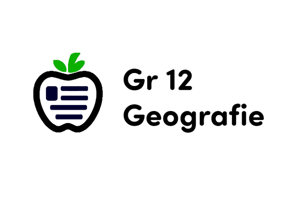Podcast
Questions and Answers
What is one method mentioned in the text to conserve water at the household level?
What is one method mentioned in the text to conserve water at the household level?
- Rainwater harvesting
- Community water conservation initiatives
- Greywater recycling (correct)
- Drought-resistant landscaping
How do water-efficient appliances help in reducing water consumption?
How do water-efficient appliances help in reducing water consumption?
- By compromising on performance
- By requiring more frequent replacements
- By minimizing water usage without compromising performance (correct)
- By increasing the amount of water used
Which type of washing machine uses less water per cycle compared to top-loaders, as mentioned in the text?
Which type of washing machine uses less water per cycle compared to top-loaders, as mentioned in the text?
- Semi-automatic washing machines
- Front-loading washing machines (correct)
- Top-loading washing machines
- Portable washing machines
What does rainwater harvesting involve?
What does rainwater harvesting involve?
Which method focuses on utilizing water from sinks, showers, and laundry for other purposes like irrigation?
Which method focuses on utilizing water from sinks, showers, and laundry for other purposes like irrigation?
What is a key benefit of implementing rainwater harvesting systems?
What is a key benefit of implementing rainwater harvesting systems?
How does drought-resistant landscaping contribute to water conservation?
How does drought-resistant landscaping contribute to water conservation?
What distinguishes greywater from blackwater in terms of reuse?
What distinguishes greywater from blackwater in terms of reuse?
How can individual action support community water conservation initiatives?
How can individual action support community water conservation initiatives?
What type of measures can communities implement for water conservation?
What type of measures can communities implement for water conservation?
Flashcards are hidden until you start studying
Study Notes
Water conservation is a crucial issue facing many regions of the world, particularly those prone to droughts and climate change. It involves the protection and wise management of our limited water resources to ensure their sustainability for current and future generations. In this article, we will explore several methods by which individuals, communities, and businesses can conserve water through various strategies such as using water-efficient appliances, implementing rainwater harvesting systems, implementing drought-resistant landscaping, utilizing greywater recycling, and participating in community water conservation initiatives.
Water-Efficient Appliances
One of the most direct ways to reduce water consumption is to invest in water-efficient appliances. These appliances have been designed to minimize water usage without compromising performance. For example, low-flow showerheads and toilets can significantly decrease the amount of water used during daily activities like bathing and going to the bathroom. Additionally, front-loading washing machines use less water per cycle compared to top-loaders. By replacing old appliances with energy-efficient models, households can make substantial reductions in their water footprint.
Rainwater Harvesting
Rainwater harvesting is another important method of water conservation. This process involves collecting and storing rainwater for later use. Common applications include watering gardens, flushing toilets, and even consumption in some cases with proper purification methods. Rain barrels are a simple and affordable way to collect rainwater from roof gutters, while more sophisticated systems can involve underground storage tanks connected to pipes supplying water to outdoor faucets and indoor fixtures. Implementing these systems can significantly reduce the demand for potable water in homes and communities.
Drought-Resistant Landscaping
Drought-resistant landscaping is becoming increasingly important in areas where water scarcity is a concern. Instead of relying on thirsty turf grasses, homeowners and municipalities can transition to native plant species that require little to no irrigation once established. Native plants also tend to be better suited to local conditions, reducing the need for fertilizers and pesticides. By incorporating xeriscaping principles into residential and commercial landscapes, it's possible to create beautiful outdoor spaces that don't strain local water supplies.
Greywater Recycling
Greywater recycling is a practice that treats wastewater generated by sinks, showers, and laundry machines for reuse within the household. Unlike blackwater, which contains human waste and must be treated at sewage treatment facilities, greywater does not pose significant health risks when reused responsibly. Simple systems can be installed to divert greywater to non-potable uses like toilet flushing and garden irrigation. Properly managed greywater recycling can greatly reduce the amount of fresh water needed for everyday tasks.
Community Water Conservation Initiatives
On a larger scale, communities can implement water conservation measures through public policy and education campaigns. Examples include metering and pricing schemes that encourage responsible use, as well as programs promoting water-wise gardening and landscape design. Governments may offer rebates for residents installing low-flow fixtures or rainwater harvesting systems, further incentivizing individual action. Educational efforts aimed at raising awareness about the importance of water conservation can also play a crucial role in shifting societal attitudes towards sustainable practices.
In conclusion, there are numerous opportunities for reducing water consumption by making changes at both the personal and collective levels. By investing in water-efficient appliances, practicing rainwater harvesting, designing drought-resistant landscapes, utilizing greywater recycling, and supporting community water conservation initiatives, individuals and groups can help ensure a more sustainable future for our planet's precious water resources.
Studying That Suits You
Use AI to generate personalized quizzes and flashcards to suit your learning preferences.




